Home Instead boss calls for 'radical change' saying social care and health must be integrated
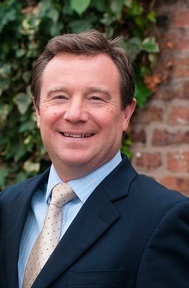 Trevor Brocklebank is part of the founding duo that launched home care franchise Home Instead Senior Care in the UK.
Trevor Brocklebank is part of the founding duo that launched home care franchise Home Instead Senior Care in the UK.
The brand has seen huge growth since it was set up by Mr Brocklebank and his wife Sam - who anticipate even more growth as the number of older people living in the UK is expected to increase by another 5.5 million to 15.5 million in the next 20 years.
Mr Brocklebank was first interviewed by homecare.co.uk in 2012. He said that a one size fits all approach to the provision of care had been adopted for too long but more collaboration between providers and innovative new approaches was emerging and would go on to benefit those receiving care.
Just over two years on, Home Instead Senior Care has 165 offices in the UK and Mr Brocklebank has been telling homecare.co.uk about how the sector has changed and continues to do so.
Recounting his hopes for collaboration to become more widespread in the care sector, he said: “Sadly it has been a race to the bottom. As local authorities have had to cut back there has been less money to spread around and so the amount of people qualifying to receive funded care has been reduced. The level of health conditions that people need to have in order to qualify for care support has been set so high.”
Prepared to pay
In late 2013, disability charity Leonard Cheshire Disability revealed that 60 per cent of local councils operated using 15 minute care slots with some councils relying on these for 75 per cent of their care provision.
Mr Brocklebank commented: “Our care visits last a minimum of one hour and are often longer, enabling the client to receive a dignified and respectful care experience.
“A 15 minute time slot to carry out care isn’t even enough to carry out basic tasks let alone having time to work with compassion and empathy and to develop meaningful relationships.”
Home Instead’s growth has doubled in the last two years and Mr Brocklebank believes this is down to the continual demand for high quality care, regardless of any extra costs involved.
He said: “Even when times are hard people are facing the probability that they have to pay privately for quality care or will make a small top up payment to their local authority direct payment - which allows people to use their funding to choose their own care provider.
“The level of need that people can have, and yet still not qualify to receive funding for care, means people with serious challenges are not receiving the support they need. People that do qualify for care are choosing to spend their direct payments with us. They prefer to have three hours of high quality care, care that is not delivered in short, rushed slots compared to the alternative provided by the local authority. That might equate to a similar quantity of visits, but much less in terms of hours spent with the client.”
Integration of care
Mr Brocklebank continues to believe integration of health and social care is the key to solving problems in the care sector and wants the Government to invest in social care to reduce both hospital re-admission and hospital admission in the first place.
Mr Brocklebank said: “It is not rocket science. More social care means that any changes to diet, medication and health - that can cause greater medical problems later on - are able to be identified earlier.
"Currently, our default solution to illness in older people is hospitalisation, which is also the most expensive option.
“It is easy to say local authorities should spend more money on social care, but the reality is there is no more money available and shaving 50p off a visit or making visits shorter in length will not solve the issue. So we need to start being more creative when thinking of a solution. The system needs radical change and for me the change is integration of health and social care.
Understanding that the system requires change is one thing both Mr Brocklebank and his wife have seen the sector come to agree on, with more social care professionals now agreeing with the need for change they expressed nine years ago when they launched Home Instead Senior Care.
Home Instead’s quality care ethos is delivered on a daily basis by its CAREGivers, the title the company believes reflects the combination of personal care and companionship created during its one hour visits, which give time for relationships to be built.
“Our CAREGivers are the most essential people in the franchise. The least important person in this business is me,” said Mr Brocklebank. “We are now creating 2,000 more jobs and the biggest challenge this has presented is finding people to employ who have the right attributes, such as having empathy and compassion.”
Celebrating home care
Home Instead Senior Care West Lancashire and Chorley was one of the first home care providers to achieve an outstanding rating by the Care Quality Commission (CQC) under its new inspection ratings regime.
Talking about the success of the Home Instead Senior Care franchise, Mr Brocklebank said: “We regularly inspect the quality of Home Instead offices and our care standards are much higher than the industry benchmark. We frequently carry out announced and unannounced audits of our franchisees to test the local delivery of the standards that our model is based upon.
“I believe a franchise model is a great model for care, it follows a structural process that is complemented by a local owner who is selected by Home Instead for their passion and commitment to delivering quality care in their locality. Most people who have a franchise with us are an average 45 years old and have already had a successful business career. Now they want to focus on making a difference in the work they do.
“We have now introduced our PEAQ (Pursuing Excellence by Advancing Quality) questionnaire which measures client and CAREGiver satisfaction. Many other industry questionnaires will ask closed questions but we ask open questions like ‘what can we do better’ to really probe what our clients and CAREGivers think.
“At Home Instead we have a low turnover of CAREGivers, while turnover of carers was highlighted in the Burstow report as being something that typically is very high among home care agencies.
The Burstow Key to Care report was published in December 2014 highlighting the home care sector as being on the verge of crisis, reporting that the current system is failing both councils and care providers as well as the people relying on care to continue living at home.
While praising the report for highlighting that working as a care assistant should be made a career of ‘esteem’, where staff are paid the living wage and given adequate training, Mr Brocklebank said it failed to address a key barrier preventing people who would like to work from applying for employment in the care sector.
He said: “The Burstow report doesn’t address the 16 hour barrier to working part-time, where people like to, and are able to work, but working more than 16 hours a week means they will lose their benefit credits. When continuity of care might require someone to have two extra hours of care a week, because those extra hours will mean a carer loses their benefit they will not necessarily feel able to carry out that care. The system is working against people being employed.”
Into the future
Looking ahead, Mr Brocklebank sees continued growth for Home Instead Senior Care in the UK.
He said: “The vision for the future is to keep improving, we currently have 165 offices and another 100 could realistically be opened in vacant territories.
“Most of our network of local offices are very young businesses and are far from reaching their potential.”
“Many people still don’t understand that home care when done well, can enable people to remain safe and supported in their own home when otherwise, a residential facility might seem the obvious and only choice.”
Latest Profiles News
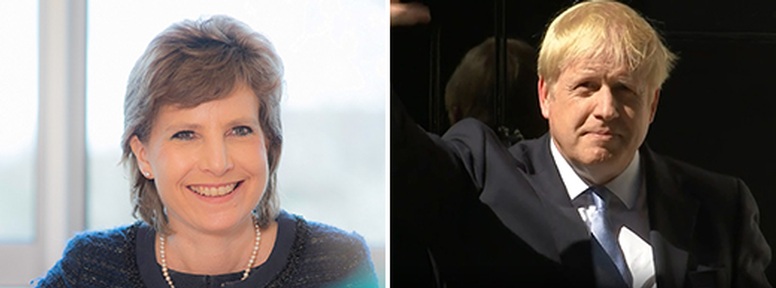 01-Aug-19
Deal or No deal: Boris Johnson must protect care workforce says home care chief
01-Aug-19
Deal or No deal: Boris Johnson must protect care workforce says home care chief
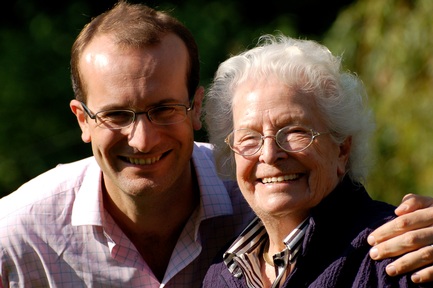 04-Dec-15
Former John Lewis director reveals why his home care company is employee owned
04-Dec-15
Former John Lewis director reveals why his home care company is employee owned
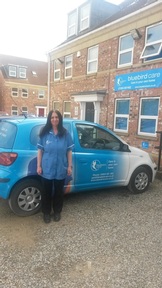 17-Jul-15
Being a home care worker gives you the opportunity 'to make a real difference to someone’s life'
17-Jul-15
Being a home care worker gives you the opportunity 'to make a real difference to someone’s life'
 04-Mar-15
Home Instead boss calls for 'radical change' saying social care and health must be integrated
04-Mar-15
Home Instead boss calls for 'radical change' saying social care and health must be integrated
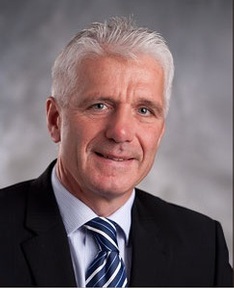 02-Dec-14
Profile: ‘We do not do 15-minute visits’ says managing director of Right at Home
02-Dec-14
Profile: ‘We do not do 15-minute visits’ says managing director of Right at Home